After the cruise MSM106 some of the WASCAL students spent some time in Germany at different institutes to work on their Master thesis. Here are some impressions from the students.
Nach der Expedition MSM106 verbrachten einige der WASCAL-Studierenden einige Zeit in Deutschland an verschiedenen Instituten, um an ihrer Masterarbeit zu arbeiten. Hier sind einige Eindrücke der Studierenden.
Samira Moussa Idrissa from Niger
My name is Samira Moussa Idrissa. After we landed in Bremerhaven, we continued to Kiel to spend a week there. During this week we had interesting group activities (courses, city walks, a group dinner), in brief, some moments of instruction and conviviality.
After this week I continued my journey on to Leipzig to concentrate on the analysis of the data for my final thesis which has the topic: “DUST AND MARINE AEROSOLS OPTICAL PROPERTIES PROFILE CHARACTERIZATION OVER SÃO VICENTE, CAPE VERDE, DURING THE ASKOS CAMPAIGN.”
Currently I am at the Tropos Institute (Leibniz Institute for Tropospheric Research) under the supervision of Holger Baars. My supervisor here and some of his colleagues like Julian Hofer help me with the development of my scripts and the analysis of the results.
I would like to continue with the a PhD. Today thanks to the experiences I made during this Cruise I am convinced of what I would like to do. This cruise has not only provided me with knowledge about marine science, but it has taught me how to acquire and appreciate that feeling of satisfaction and pride in what we do and what we bring as result. Seeing our supervisors on board explain their experiences with passion and enthusiasm, I realized that this is what I would like to do for my future. These emotions, is what I would like to share with people when I will reach this position.
Samira Moussa Idrissa aus dem Niger
Mein Name ist Samira Moussa Idrissa. Nachdem wir in Bremerhaven angekommen waren, sind wir weiter nach Kiel gefahren, um dort eine Woche zu verbringen. Während dieser Woche hatten wir interessante Gruppenaktivitäten (Kurse, Stadtspaziergänge, ein gemeinsames Abendessen), kurz gesagt, einige Momente voller Unterricht und Gemütlichkeit.
Nach dieser Woche setzte ich meine Reise nach Leipzig fort, um mich auf die Analyse der Daten für meine Abschlussarbeit zu konzentrieren, die das Thema hat: “CHARAKTERISIERUNG DER OPTISCHEN EIGENSCHAFTEN VON STAUB UND MARINEN AEROSOLEN ÜBER SÃO VICENTE, KAP VERDE, WÄHREND DER ASKOS-KAMPAGNE.”
Derzeit bin ich am Tropos-Institut (Leibniz-Institut für Troposphärenforschung) unter der Leitung von Holger Baars. Mein Betreuer hier und einige seiner Kollegen wie Julian Hofer helfen mir bei der Entwicklung meiner Skripte und der Auswertung der Ergebnisse.
Ich würde gerne mit einer Promotion weitermachen. Dank der Erfahrungen, die ich während dieser Expedition gemacht habe, bin ich heute davon überzeugt, was ich machen möchte. Diese Fahrt hat mir nicht nur Wissen über die Meeresforschung vermittelt, sondern mich auch gelehrt, das Gefühl der Zufriedenheit und des Stolzes auf das, was wir tun und was wir als Ergebnis liefern, zu erkennen und zu schätzen. Als ich sah, wie unsere Betreuer an Bord ihre Erfahrungen mit Leidenschaft und Enthusiasmus teilten, wurde mir klar, dass ich mir genau das für meine Zukunft wünsche. Solche Gefühle möchte ich mit den Menschen teilen, wenn ich diese Position erreiche.
Désiré Dêgbé Fiogbe Attannon from Benin
I really enjoyed my 3 weeks at AWI in Bremerhaven.
I went to the institute every day from 09 am to 05 pm. I had access to free WIFI for work. We usually have lunch break at 12 am. In between we had some coffee break too. I like how the work is organized at the Institute. The team I was with is very nice, I was busy working with my samples in the lab and they were always with me providing materials, explanation and advice to make the analysis easy to understand and run for me. We always have lunch together and sometimes they share some food with me. I was also surprise when at the end of the last day, they offered me a special coffee break, there were plenty of cake and tea. I’m thankful to Miriam, Lena, Enra and my supervisor Dr. Mar for everything that has been done during my stay at the Alfred Wegener Institute.
Outside the Institute, my stay in Bremerhaven was made possible by Dr. Heino Fock and Dr. Henrike Andresen. They provided me with everything to feel like I’m at home. I’m satisfied and thankful to them for all the supports and the dinner we had with the family. Feel in the blessing.
Many thanks to Dr. Björn, my best scientist, I learned a lot from him, I learned how to reconsider things, to be critical and accurate. I will keep learning a lot from you. Thank you very much for being there every time.
Désiré Dêgbé Fiogbe Attannon aus Benin
Ich habe meine 3 Wochen am AWI in Bremerhaven sehr genossen.
Ich war jeden Tag von 09.00 bis 17.00 Uhr im Institut. Ich hatte Zugang zu kostenlosem WIFI für die Arbeit. Normalerweise hatten wir um 12 Uhr Mittagspause. Zwischendurch hatten wir auch eine Kaffeepause. Mir gefällt, wie die Arbeit im Institut organisiert ist. Das Team, mit dem ich zusammen gearbeitet habe, ist sehr nett. Ich war mit meinen Proben im Labor beschäftigt, und sie waren immer bei mir und haben mir Materialien, Erklärungen und Ratschläge gegeben, damit ich die Analyse leicht verstehen und durchführen konnte. Wir essen immer zusammen zu Mittag und manchmal teilten sie etwas Essen mit mir. Ich war auch überrascht, als sie mir am Ende des letzten Tages eine besondere Kaffeepause anboten, es gab reichlich Kuchen und Tee. Ich bekam ein Erinnerungsfoto, das in diesem Blogartikel gezeigt wird. Ich bin Miriam, Lena, Enra und meinem Betreuer Dr. Mar dankbar für alles, was während meines Aufenthalts am Alfred-Wegener-Institut getan wurde.
Außerhalb des Instituts wurde mein Aufenthalt in Bremerhaven durch Dr. Heino Fock und Dr. Henrike ermöglicht. Sie haben mich mit allem Notwendigen versorgt, damit ich mich wie zu Hause fühle. Ich bin glücklich und dankbar für all die Unterstützung und das Abendessen, das wir in der Familie hatten. Ich fühle mich gesegnet.
Vielen Dank an Dr. Björn, meinen besten Wissenschaftler, ich habe viel von ihm gelernt, ich habe gelernt, Dinge zu überdenken, kritisch und genau zu sein. Ich werde weiterhin viel von dir lernen. Vielen Dank, dass du jedes Mal für mich da bist.
Gnilane Diogoye from Senegal
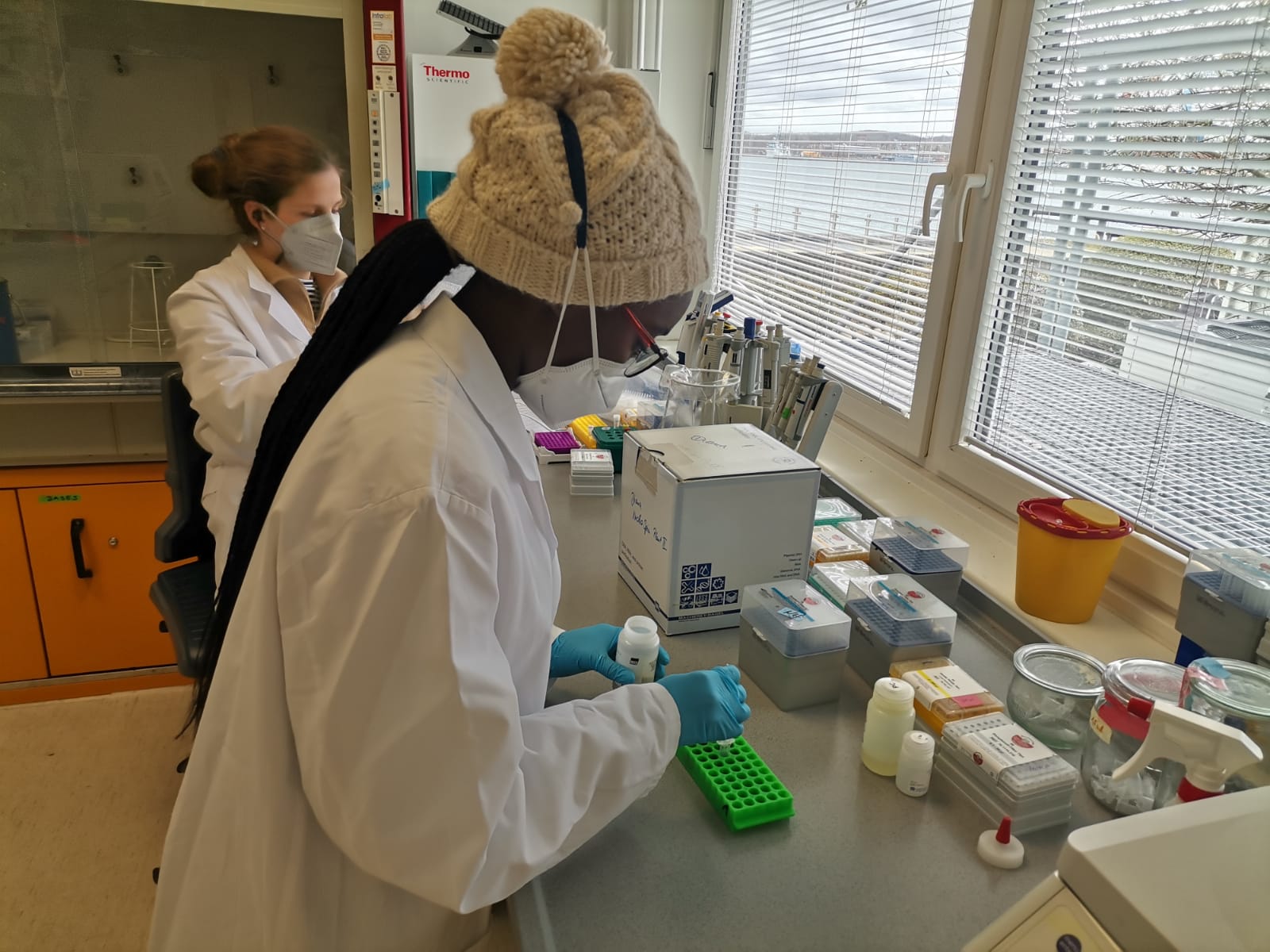
Please describe your experience here in Germany. What was most different from what you are used to from home?
The weather, the food, the traffic, the types of buses, the student accommodation, etc., are different from what I am used to. The thing that impressed me the most from the first day I visited Kiel city was “how pedestrians respect traffic lights” and how the bus transport is well planned and not overcrowded like at home in Senegal. And I appreciated how useful the bicycle is here in Kiel. I really appreciate the different designs to carry the children with the bike.
Regarding scientific research, the first time I entered and visited the GEOMAR premises I was amazed at the variety of research instruments that are found there and the diversity of scientific departments combined in this huge institution, and how well equipped the research laboratories are. I was also happy to see that GEOMAR opens the door to students from different continents and different fields of scientific expertise related to the ocean and they carry out various experiments in the framework of their research topic.
Describe the research project you are working on, who supports you and in which way was this necessary for your thesis.
I am currently extracting DNA from my seagrass samples that I brought with me under the supervision of Professor Thorsten Reusch. Diana Gill, his lab technician, is helping me with my work. As my master thesis is also about the restoration of the seagrass ecosystem, I tried to learn and inform myself about everything related to it in the Marine Evolutionary and Ecology department where I am such as: visiting the seagrass culture experiment in the Nemo Hall, practising the sieving of seagrass sediments, asking questions about the restoration methods used etc.
What are your plans for the future? In which way has the floating university influenced your path?
My future project is to do a Ph.D. on fauna biodiversity study in the seagrass ecosystem of Senegal (which has never been done yet) and if I have the opportunity, I would like to collaborate with GEOMAR, because what I have experienced since my arrival strengthens my curiosity about this “wonderful” underwater ecosystem.
Wascal floating boat has allowed me to see and feel how exciting the work in the marine domain is and how the tasks to be done for the protection and conservation of marine biodiversity are to be enhanced for a sustainable ecosystem.
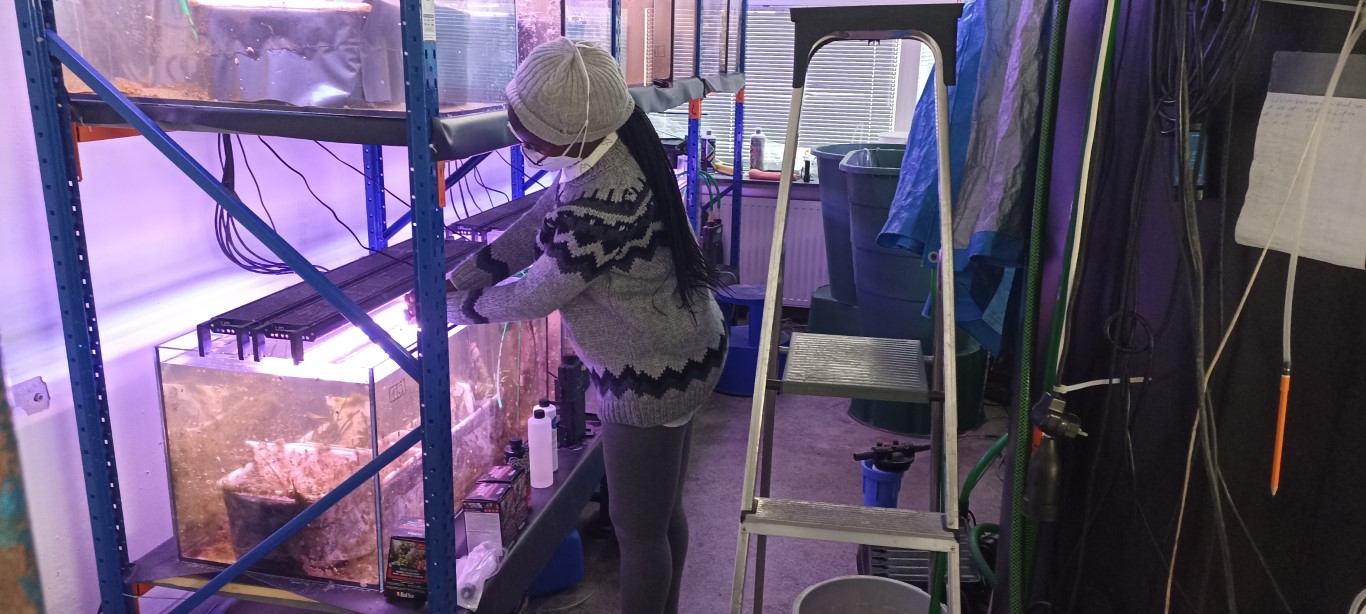
Gnilane Diogoye aus dem Senegal
Bitte beschreibe deine Erfahrungen hier in Deutschland. Was war besonders anders als das, was du von zu Hause gewohnt bist.
Das Wetter, das Essen, der Verkehr, die Art der Busse, die Studentenwohnheime usw. sind anders als das, was ich gewohnt bin. Was mich am ersten Tag in Kiel am meisten beeindruckt hat, war, “wie die Fußgänger die Ampeln respektieren” und dass der Busverkehr gut geplant und nicht überfüllt ist wie zu Hause im Senegal.
Was die wissenschaftliche Forschung betrifft, so war ich beim ersten Besuch des GEOMAR-Geländes erstaunt über die Vielfalt der Forschungsinstrumente, die dort zu finden sind, über die Vielfalt der wissenschaftlichen Abteilungen, die in dieser riesigen Einrichtung vereint sind, und über die gute Ausstattung der Forschungslabore. Es hat mich auch gefreut zu sehen, dass das GEOMAR Studierende aus verschiedenen Kontinenten und verschiedenen wissenschaftlichen Fachgebieten, die mit dem Ozean zu tun haben, die Tür öffnet und sie im Rahmen ihrer Forschungsgebiete verschiedene Experimente durchführen.
Beschreibe das Forschungsprojekt, an dem du arbeitest, wer dich unterstützt und inwiefern dies für deine Abschlussarbeit hilfreich war.
Ich extrahiere gerade DNA aus meinen Seegrasproben, die ich mitgebracht habe, unter der Aufsicht von Professor Thorsten Reusch. Diana Gill, seine Laborantin, hilft mir im Labor. Da es in meiner Masterarbeit auch um die Wiederherstellung des Seegras-Ökosystems geht, habe ich versucht, in der Abteilung für Marine Evolution und Ökologie, in der ich mich befinde, alles zu lernen und mich über alles zu informieren, was damit zusammenhängt.
Was sind deine Pläne für die Zukunft? In welcher Weise hat die “schwimmende Universität” deinen Weg beeinflusst?
Mein zukünftiges Projekt ist eine Doktorarbeit über die Artenvielfalt der Fauna im Seegras-Ökosystem des Senegal (noch von niemandem untersucht worden), und wenn ich die Möglichkeit habe, würde ich gerne mit dem GEOMAR zusammenarbeiten, denn was ich seit meiner Ankunft erlebt habe, hat meine Neugier auf dieses “wunderbare” Unterwasser-Ökosystem verstärkt.
Das schwimmende Boot von Wascal hat es mir ermöglicht, zu sehen und zu spüren, wie aufregend die Arbeit im marinen Bereich ist und wie die Aufgaben zum Schutz und zur Erhaltung der marinen Artenvielfalt für ein nachhaltiges Ökosystem verbessert werden müssen.
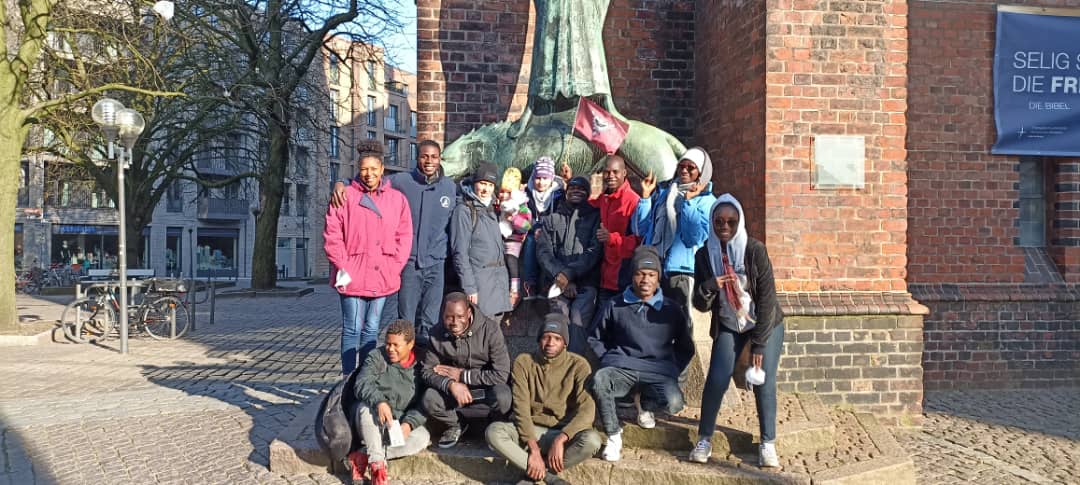
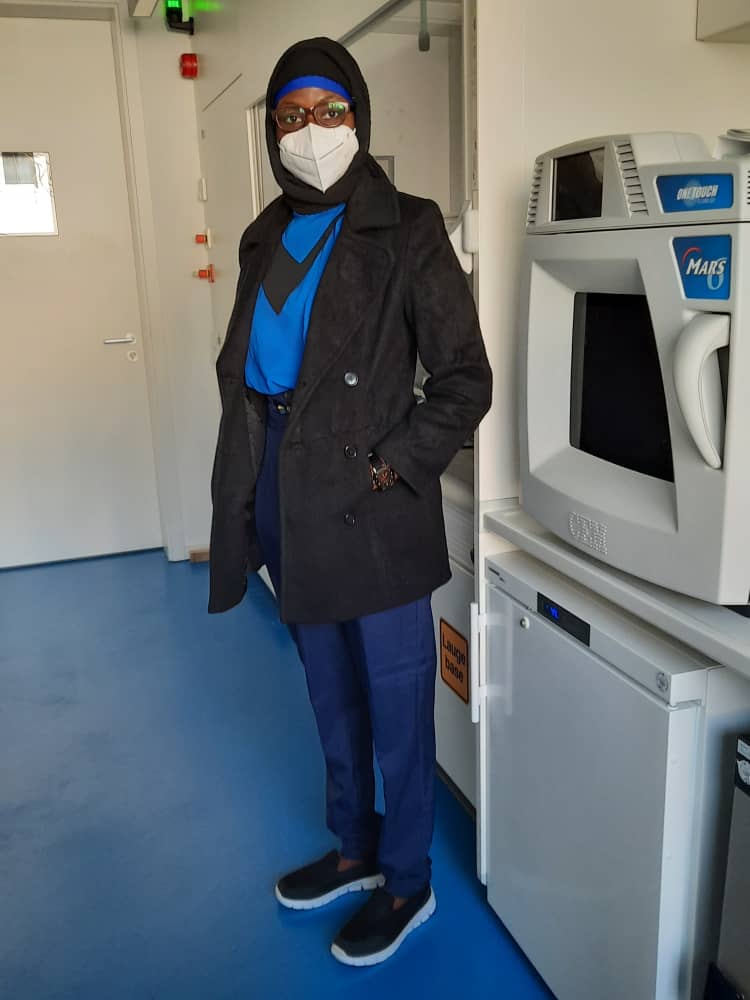
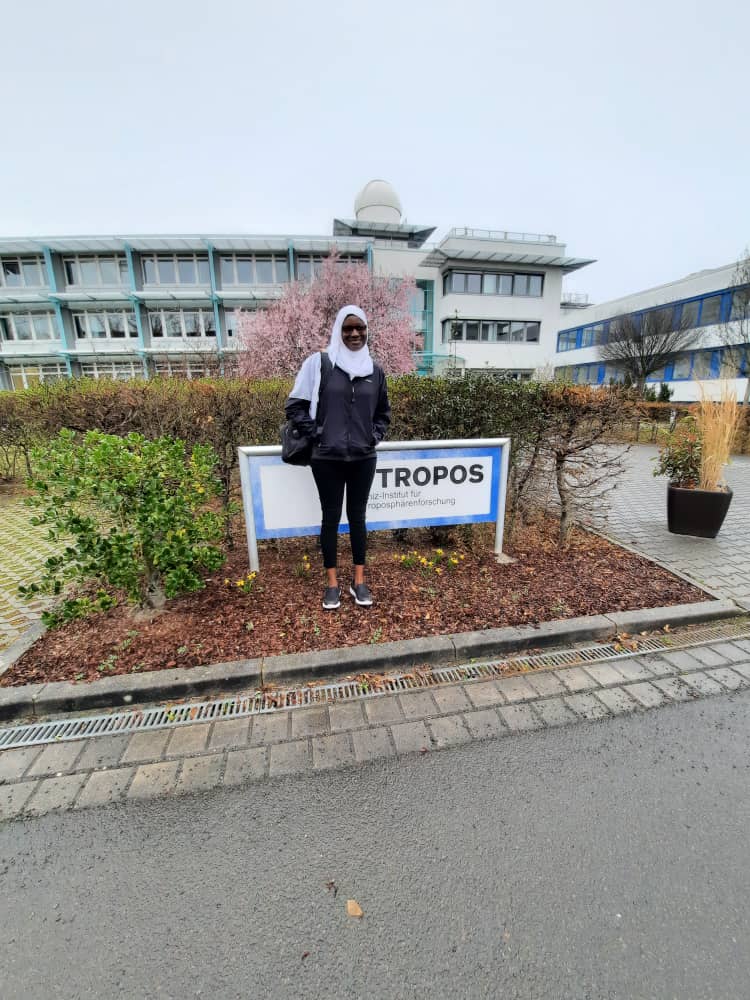
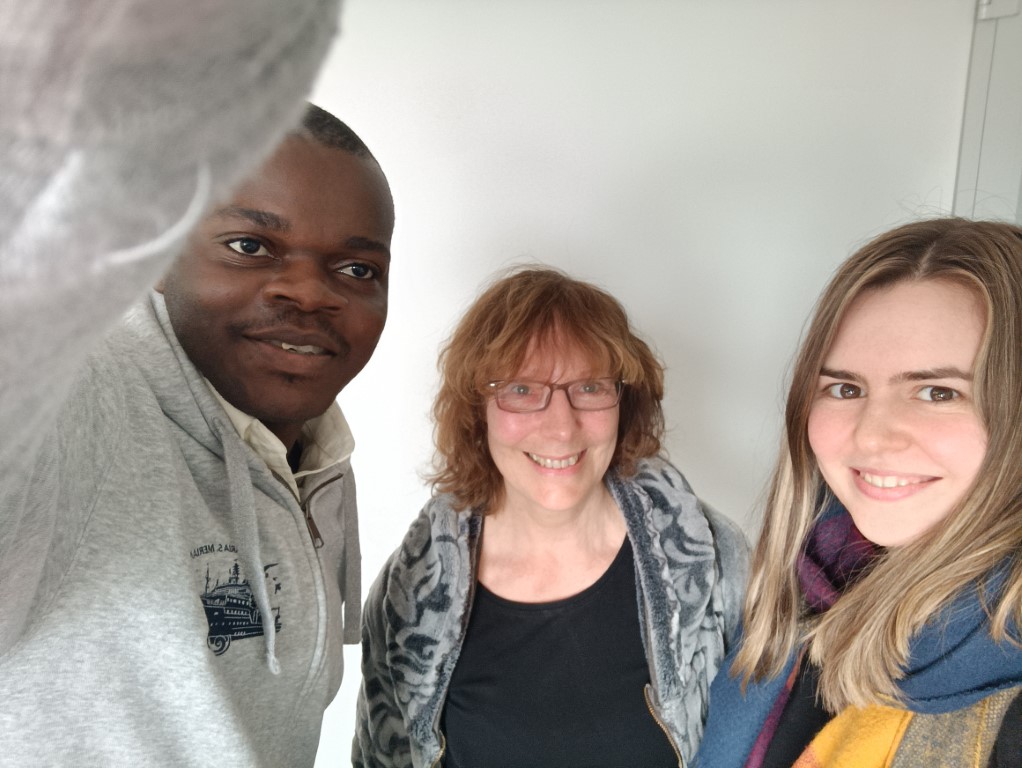
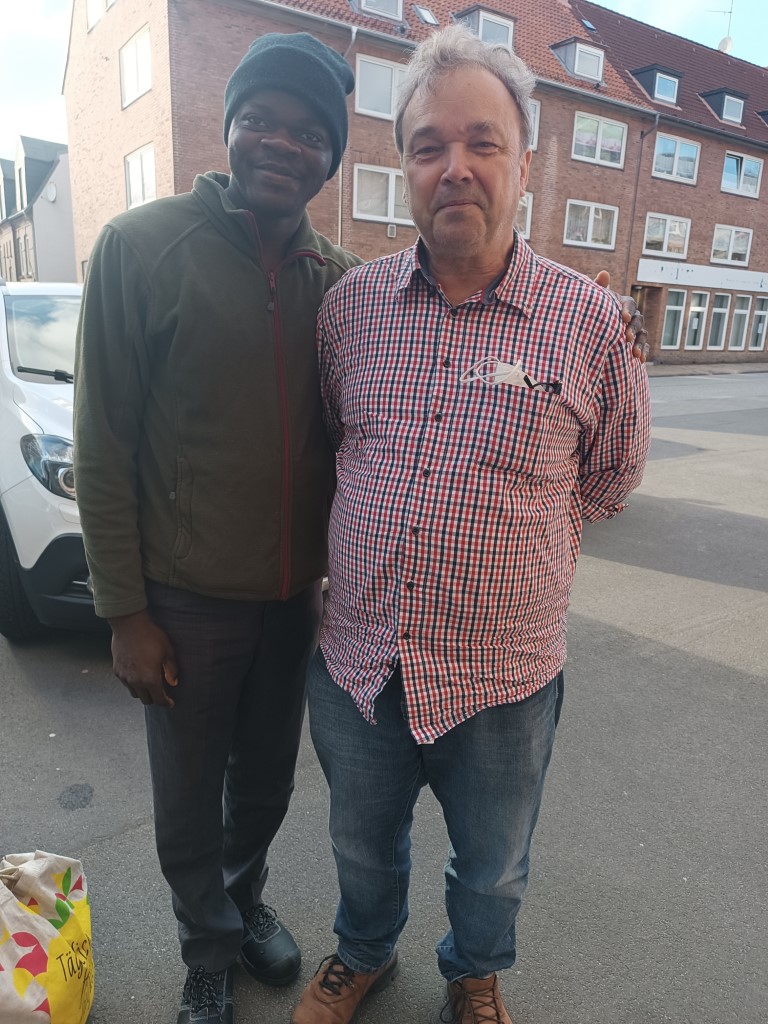
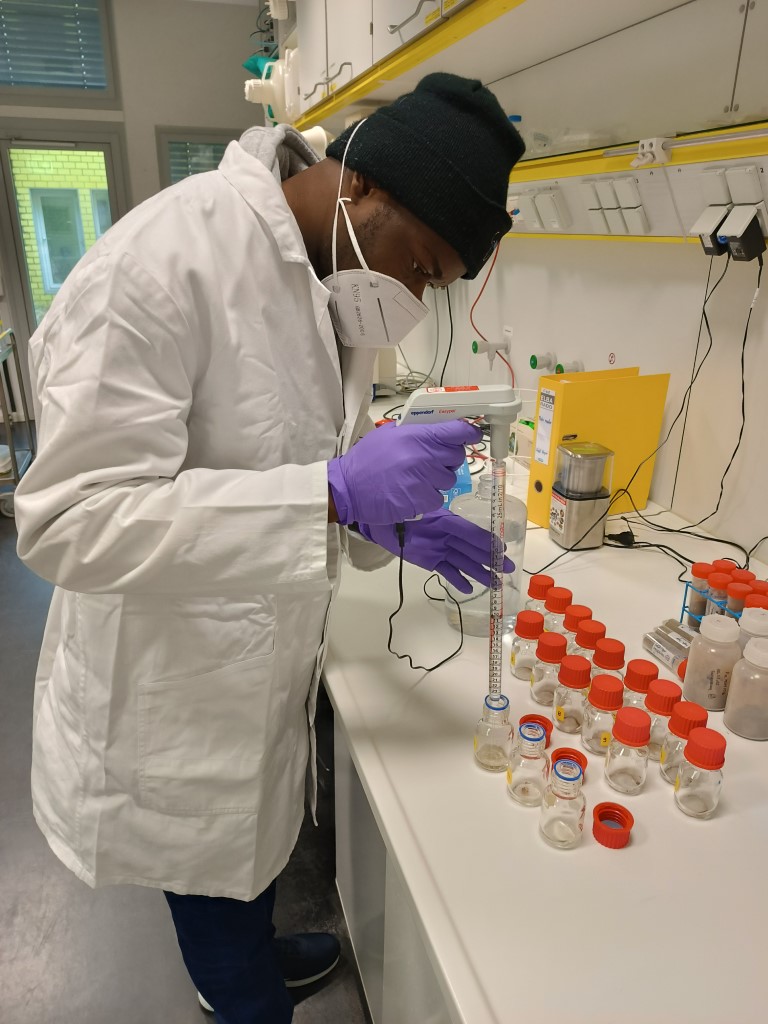
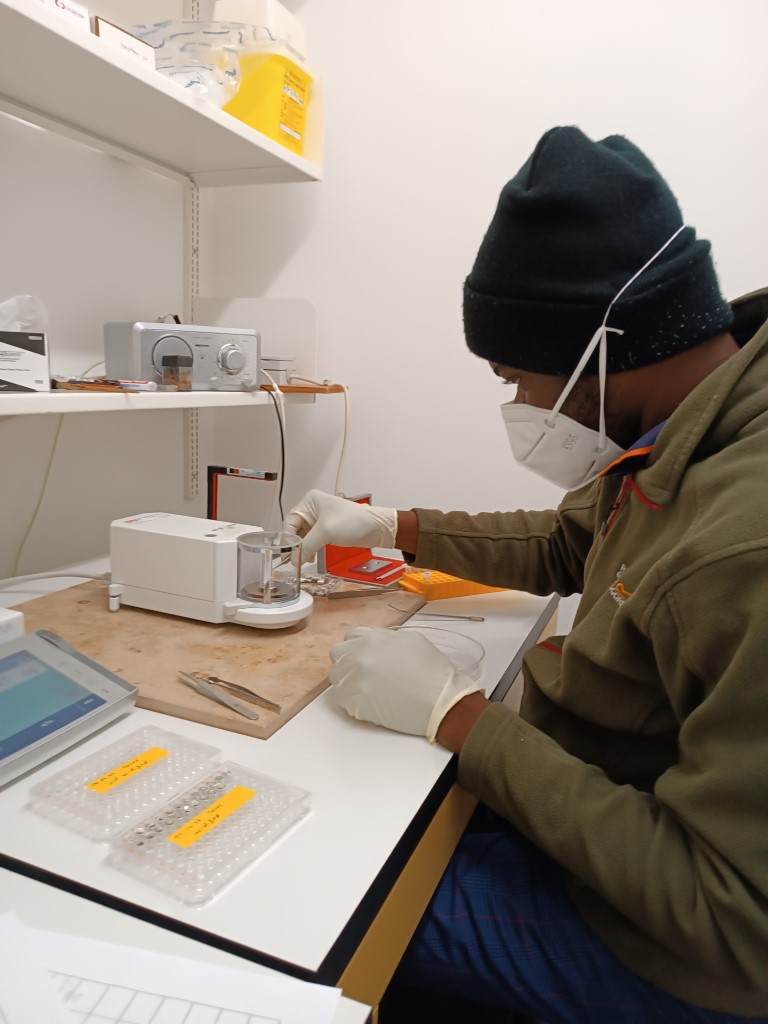
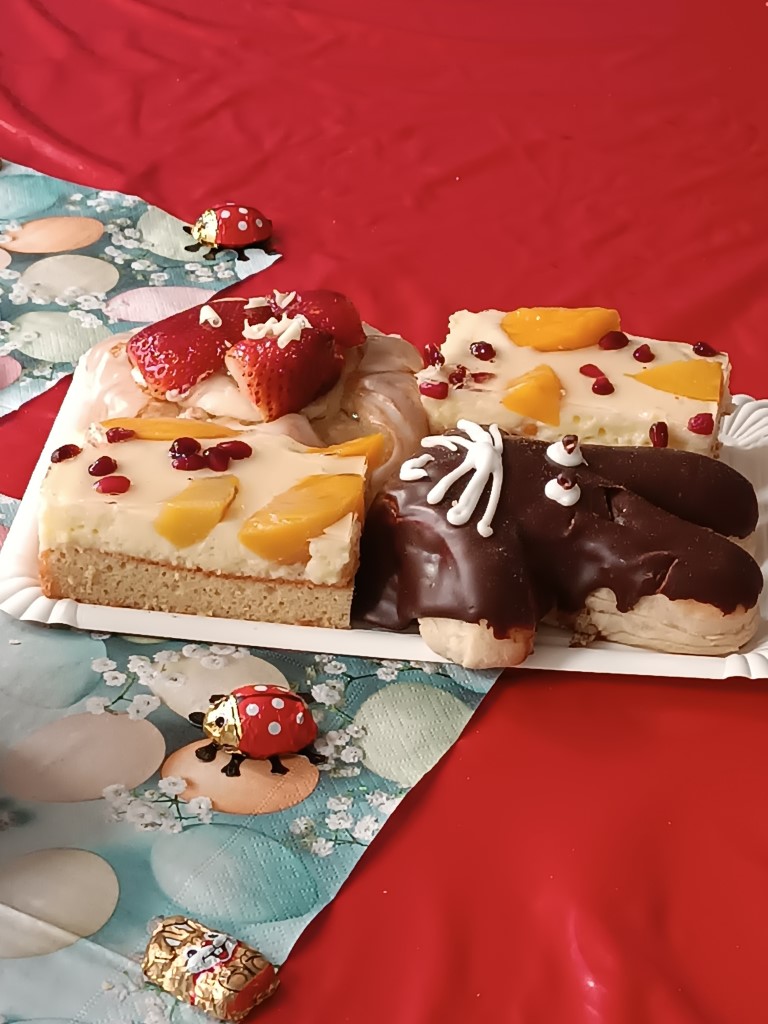
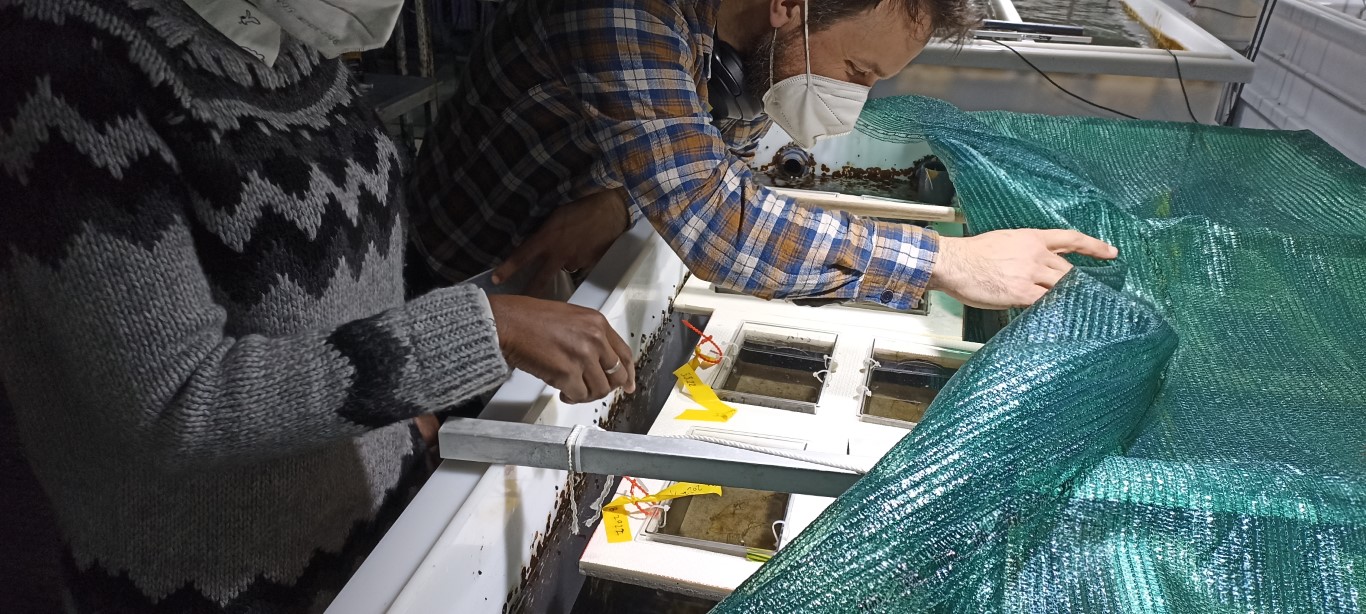
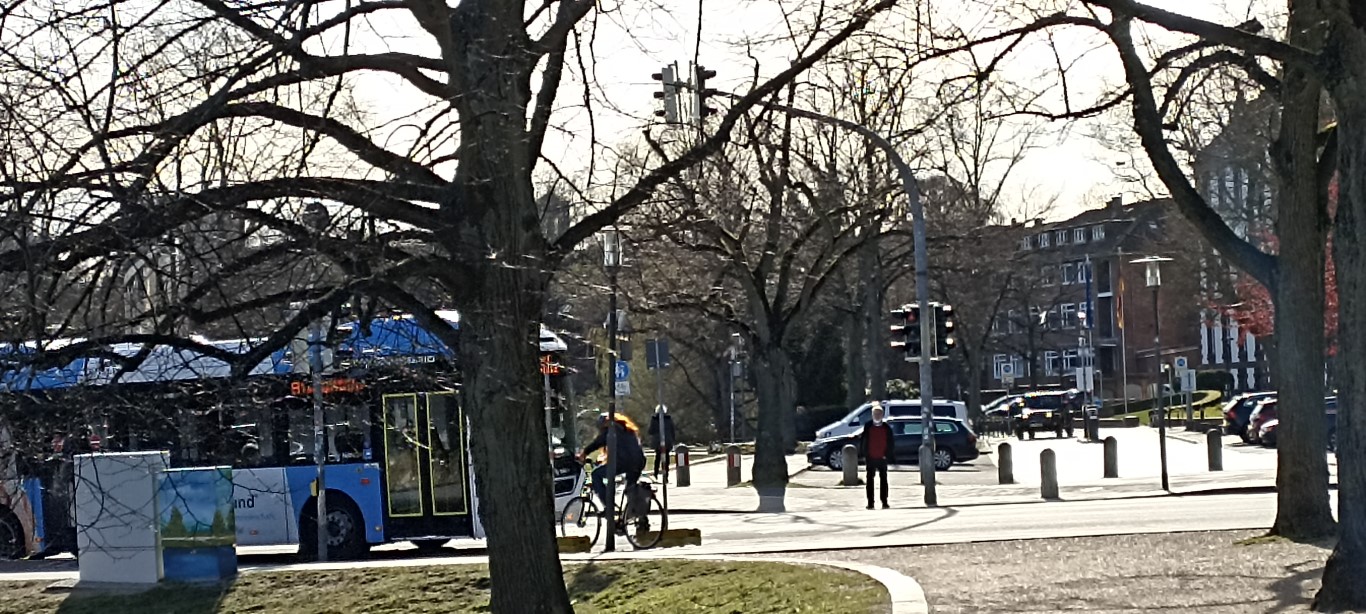
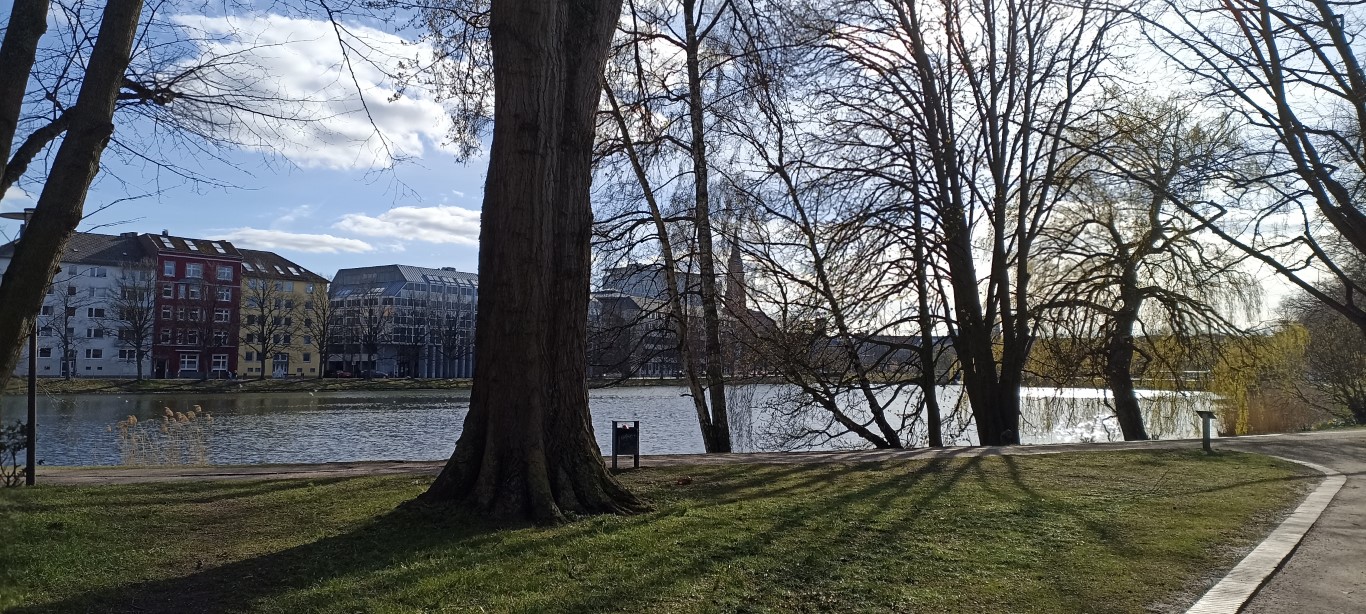
Awesome experience and knowledge that you got through this floating university.